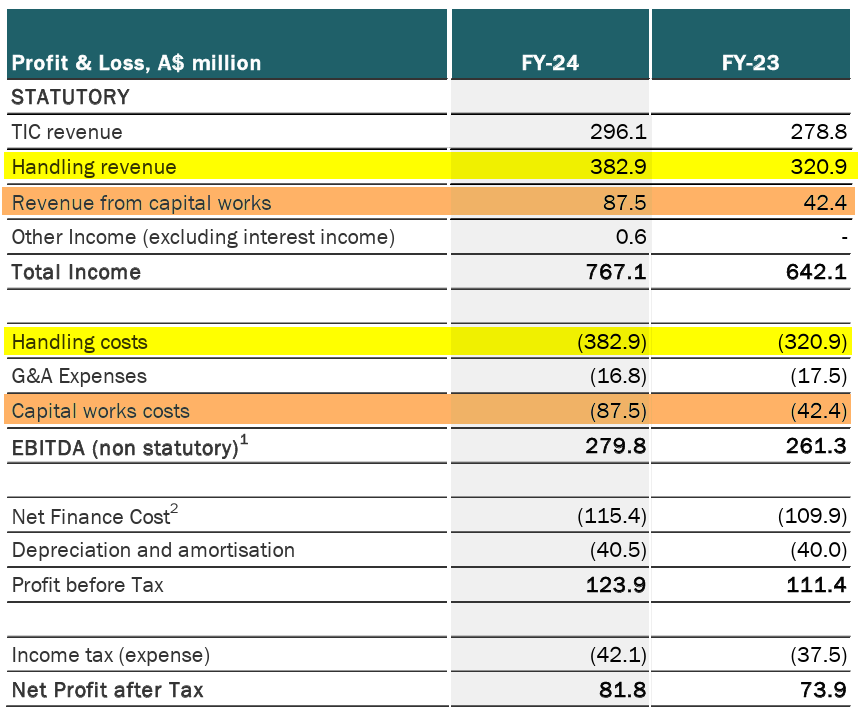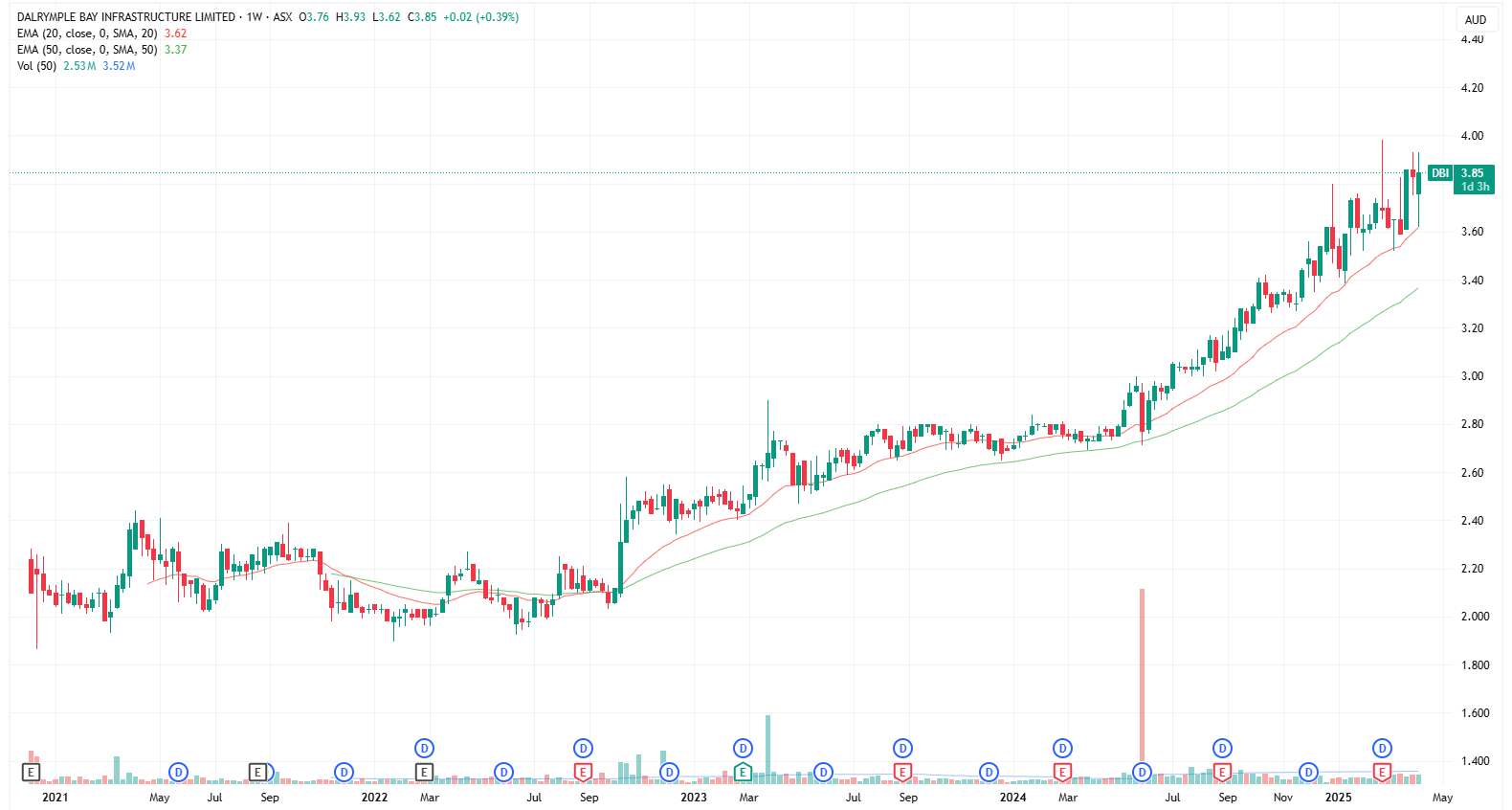ASX Dividend Stocks: This 6-8% yielder held steady during the market selloff
Global equity markets have been a brutal rollercoaster, driven by President Trump’s America-First trade war. Between February 14 and April 7, the S&P/ASX 200 plunged as much as 14%.
Rock-Solid Earnings
To understand why the stock isn't budging in the face of a global trade war and recession fears, you need to peek under the hood of its business model.
DBI operates the Dalrymple Bay Terminal (DBT), the cheapest export route for Bowen Basin mines, serving giants like Rio Tinto, Glencore, Anglo American, and BHP. It doesn’t own the terminal outright — rather, it holds a 99-year lease (50 years initial, plus a 49-year option) from the Queensland Government.
DBI’s profit and loss statement stands out due to two line items that offset each other. Here’s a snapshot from their 2024 full-year results (year ended December 31, 2024):

Source: Dalrymple Bay Infrastructure 2024 full year financial report
Taking a closer look at the line items:
- TIC revenue: This is the company's core revenue stream — a fee charged per tonne of coal handled at DBT.
- Handling revenue: DBI passes all operating and maintenance costs (think labor, equipment, upkeep) straight to its customers. This means handling revenue always matches handling costs.
- Revenue from capital works: DBI funds Non-Expansion Capital Expenditure (NECAP) projects — like safety upgrades or equipment replacements — with its own cash or debt. These costs are capitalised (not expensed immediately) and recovered over time through TIC rate hikes, including a return tied to bond yields. That’s why "revenue from capital works" equals "capital works costs".
Take-or-Pay Stability
Coal prices have taken a beating lately. Australian coal hit a four-year low, with Newcastle futures down 24% over the past year to US$98/tonne, thanks to oversupply, a mild northern hemisphere winter, and economic jitters. This has hammered coal stocks like Whitehaven Coal and New Hope, down 25 and 36% year-to-date, respectively. But this is not an issue for DBI. As the company noted in its 2024 results:
"Regardless of the tonnes exported, DBI receives the TIC on every tonne of the terminal’s annual contracted capacity of 84.2mt. All capacity is fully contracted to at least 2028."
In other words, DBI gets paid no matter what. Whether coal volumes rise or fall, those take-or-pay contracts lock in revenue stability.
Dividend Appeal
Looking ahead, DBI has guided for a 2025 full-year distribution of 23 cents per share, paid quarterly. This represents a 7% year-on-year increase. Such certainty around earnings and dividends is rare.
To add some perspective, household dividend stocks like Commonwealth Bank, BHP and Telstra currently yield 3.0%, 5.2% and 4.2% respectively.
This might explain why the stock has been so steady over the years. The below weekly price chart showcases a steady uptrend, with shallow pullbacks.

Weekly Dividend Deep Dives
Every week, I take a closer look at some of the interesting dividend payers on the market. Some of my previous pieces include:
- Euroz Hartleys: A 5% yield leveraged to the gold sector
- Healius: A one-off 30% yield is up for grabs
- Servcorp: A 5-7% yielder paired with an upward-trending share price
- Spark New Zealand: Unpacking one of the market's biggest yield traps
- Yancoal: The ASX 200's former dividend leader returns to the high-yield club
This article first appeared on Market Index on Thursday 10 April 2025.
3 topics
1 stock mentioned

